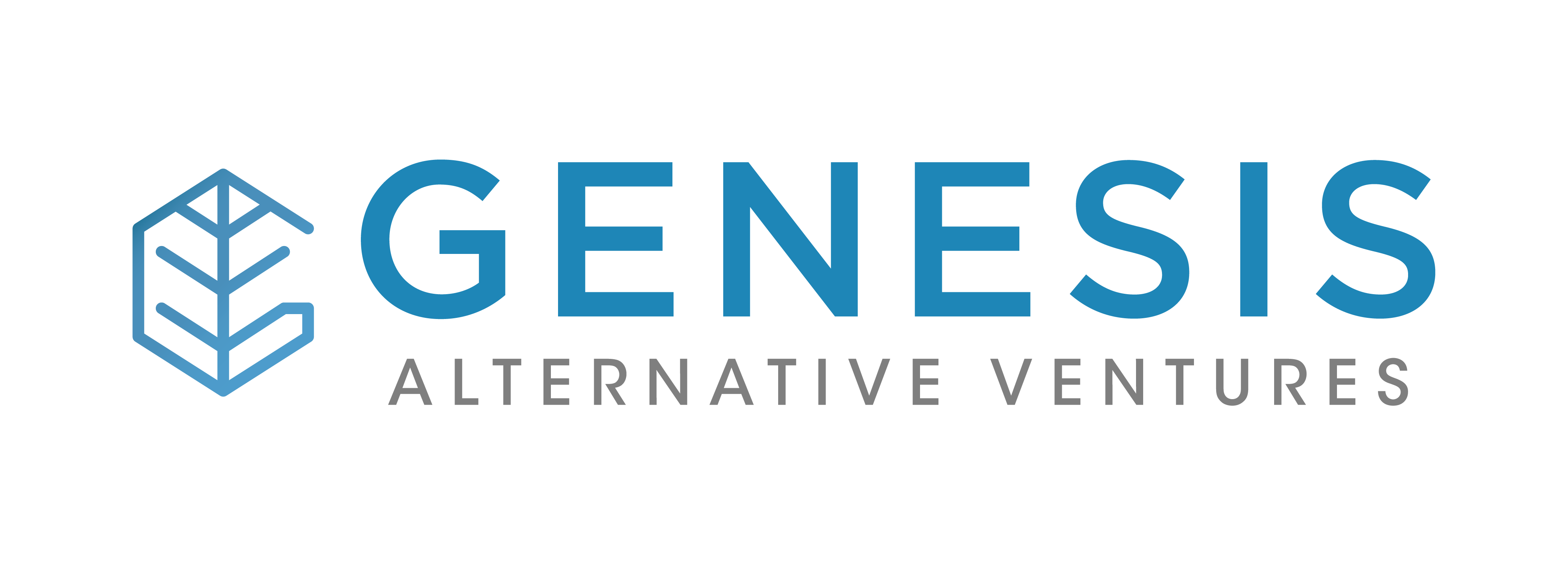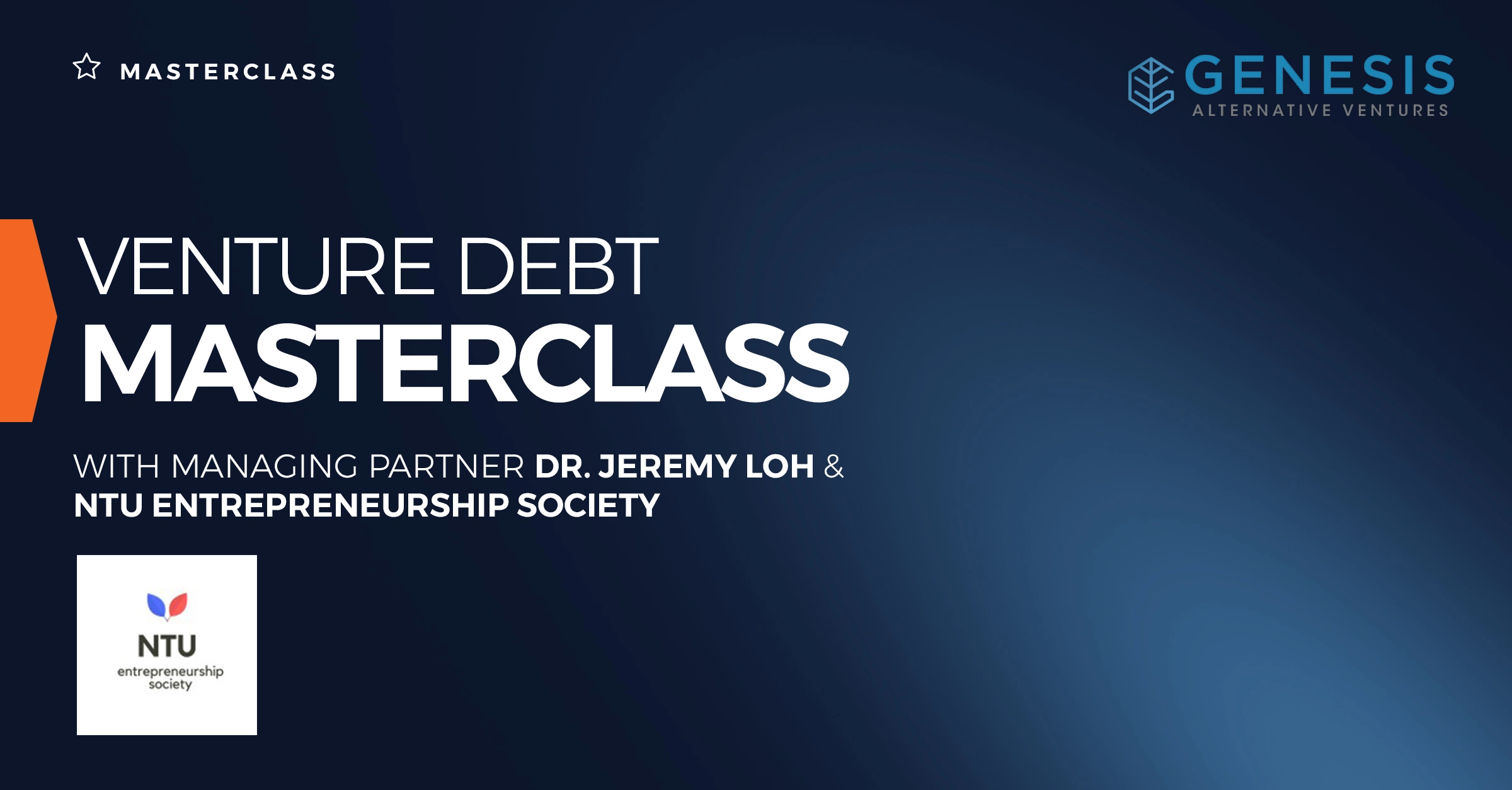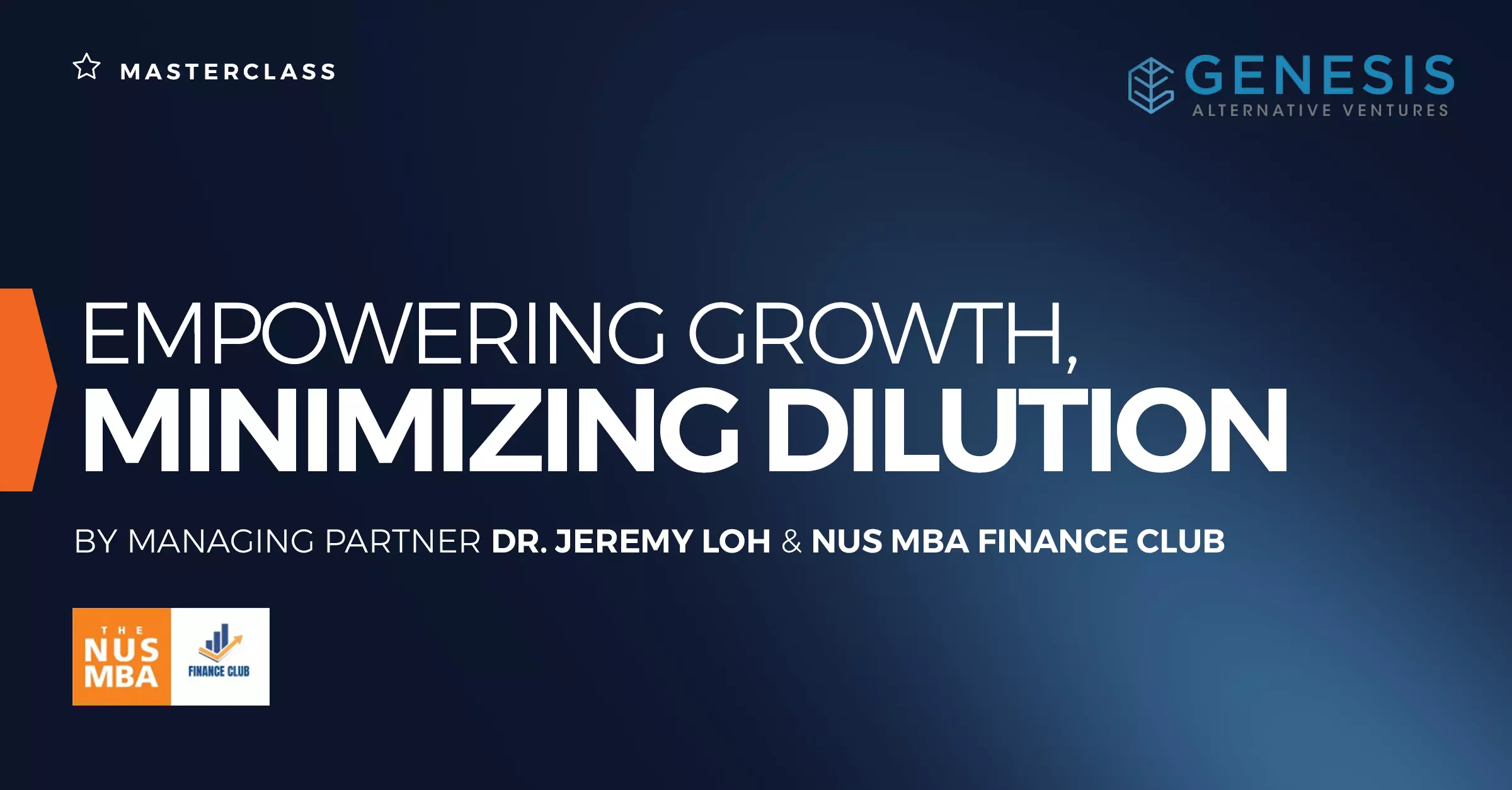In this Masterclass on venture debt for NTU Entrepreneurship Society, Dr. Jeremy Loh shares the following insights:
- Background of venture debt industry
- Differences between VC and PE firm
- Blended costs of capital
- How startups are assessed before investments are made and the importance of credit history
- The importance of partnerships within the venture funding community.
- Advice for future founders with ambitious aspirations or need capital to scale
- What it takes to be an intern at a venture fund with a personal sharing by Genesis intern Kang Ying Kwek (Class of 2021).
- Internship opportunities at Genesis and portfolio companies.



